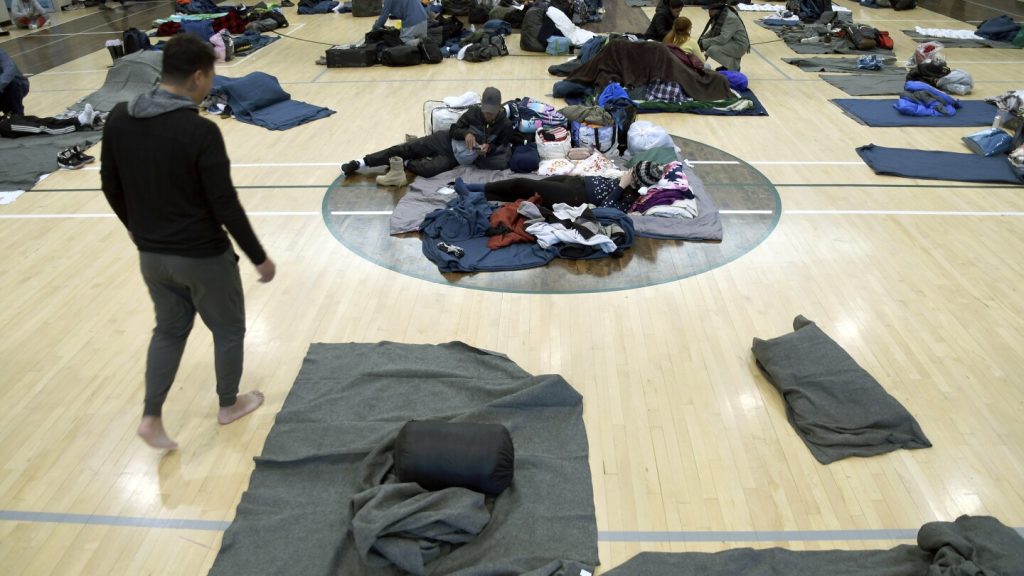Denver Mayor Mike Johnston announced a new approach to the city’s response to the migrant crisis, extending support to six months for approximately 1,000 spaces. This decision comes after failed attempts to secure federal aid and budget cuts as Denver has accommodated nearly 41,000 migrants since the end of 2022. The new program will place asylum seekers in apartments for up to six months, offering job training, skill development, food assistance, and help with asylum applications to prepare them during the waiting period for a work permit.
While Denver is moving towards longer-term support for migrants, other major cities like New York City and Chicago have implemented shorter stays in their shelter systems. New York City guarantees most adult migrants 30 days in shelters, with some exceptions for families with children receiving up to 60 days. Chicago has enforced a 60-day limit on shelter stays since mid-March, with few evictions due to exemptions such as families with children in school. Overall, more than 15,000 people in Chicago have found other housing options since 2022, with rental assistance provided by the state.
Denver and other Democratic-led cities had requested federal assistance from the Biden administration to address the increasing number of migrants in their communities. However, Congress did not allocate funding for the effort and cut the Federal Emergency Management Agency’s Shelter and Services Program by $150 million. Johnston stated that the city had no choice but to take action, leading to the creation of the Denver Asylum Seeker Program. The program aims to provide support to 800 migrants currently in the city’s shelters, with a cap of approximately 1,000 spaces expected to be reached soon.
The city’s costs for supporting migrants will be lower than initially expected, with services like recreation centers being restored after being cut earlier to accommodate the financial burden of operating seven hotels. The program’s success was attributed to a collaborative effort involving apartment owners, rental assistance programs for non-citizens, and nonprofit partnerships providing debit cards for food expenses. Johnston expressed confidence in the program, stating that Denver would share its strategies with other cities in need of assistance, as they believe they have found an effective way to support migrants during their transition period.
While Denver’s new approach marks a significant shift in addressing the migrant crisis, it reflects a commitment to upholding American values and providing essential support to asylum seekers. By offering comprehensive services, job training, and assistance with asylum applications, the city aims to empower migrants during their waiting period for a work permit. As other cities navigate their response to the influx of migrants, Denver’s innovative program may serve as a model for providing effective and sustainable support to those in need.


